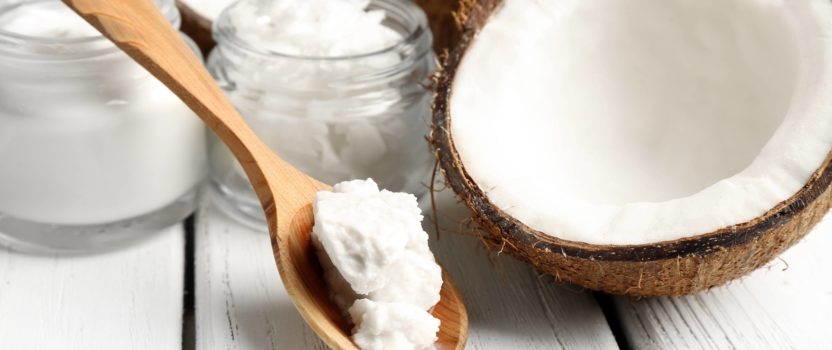Coconut Oil – Friend or Foe?
Lately coconut oil has been getting a bad rap – mainly due to its high content of saturated fats. Many people are wondering whether they should be using it or not. Let’s separate the facts from the fiction.
The short answer
Coconut oil is one of the healthiest foods on the planet, with fat-burning, immune boosting and many additional health properties.
The longer answer
Coconut oil contains saturated fat – in fact, a whopping 90 percent. But don’t panic! Although the media may have you convinced that all saturated fat should be avoided at all costs – coconut oil is healthy.
Despite over 60 years of negative public policy around healthy saturated fats like those found in coconut oil, studies of cultures that have used coconut oil for thousands of years tell a different story – that healthy saturated fat can be highly beneficial.
Research demonstrates that the naturally occurring saturated fat found in coconut oil has some amazing therapeutic values. Here are a few:
- Promotes heart health
- Boosts the immune system
- Provides immediate energy
- Promotes healthy skin
- Helps to regulate blood sugar
- Boosts metabolism
- Promotes weight loss
Not all saturated fats are equal
Coconut oil is vastly different from most other foods. It is comprised mainly of medium chain fatty acids, while most other foods contain long chain fatty acids. Medium chain fatty acids are metabolized much differently than longer chain fats found in modern-day seed/vegetable oils, processed shortenings and almost all highly refined foods.
Long chain fatty acids (LCFAs) are very difficult for the body to break down and can put a tremendous strain on the pancreas, liver and digestive system. In addition, LCFAs are stored mainly as fat in the body, and are deposited in arteries as cholesterol. In contrast, medium chain fatty acids (MCFAs), like those found in coconut oil, are easy to break down and are sent directly to the liver to be used for energy – they are not stored as fat.
Energy boost
Coconut oil packs tremendous thermogenic power when compared to long chain fats. One study demonstrated how just 1 to 2 tablespoons of MCFAs per day can increase energy expenditure by 120 calories per day. Other studies confirm the findings and clearly demonstrate that when we replace some of the fats we eat (including those found in processed foods) with MCFAs, we burn more calories – no contest.
Another reason to consume raw, organic coconut oil is that it tends to make us feel fuller for longer. Studies indicate that MCFAs help increase feelings of fullness and curb hunger more than other fats. When MCFAs are metabolized, ketone bodies are created in the liver – these have been shown to have a strong appetite reducing effect.
How to add coconut oil to your diet
Coconut oil can replace all the other oils in your kitchen. Raw, organic coconut oil remains solid at room temperature and does not break down during cooking. You can fry with it, bake with it, drizzle it on foods, sauté with it – and put it on your skin, hair and nails. There is no shortage of ways to use coconut oil to improve your health – you can even add a tablespoon or so to your morning coffee for a great energy boost!
Bottom Line
Coconut oil is made up mostly of heart-healthy fats that help manage weight as they can quickly be broken down and used for immediate energy. I recommend keeping a jar in the bathroom as well as the kitchen!


Leave a Reply
Your email is safe with us.
You must be logged in to post a comment.